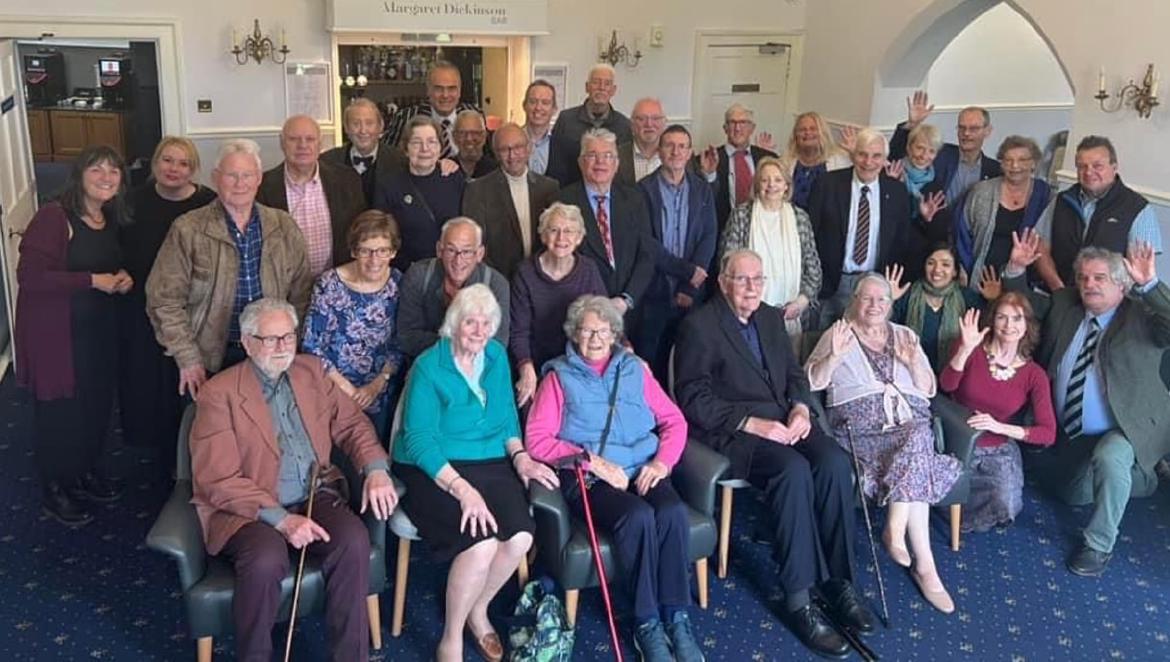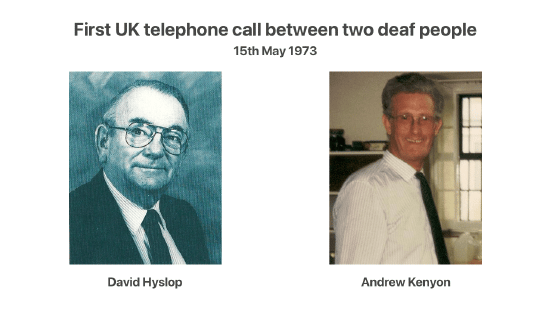The event was held on Saturday 20th April 2024 in the Sonning room of a Grade 1 listed building, Bisham Abbey Manor House, Bisham, Nr Marlow, Buckinghamshire.
Graham Hocking, Co-Chair of Deaf Aspirations (DA) - and former Deafax Project Manager, welcomed several distinguished guests, Diane Kenyon, DA President, Vice-Presidents, Hamish Rosie and Alan Murray – MBE (& Ambassador). David Rose, deafPlus Trustee’s Chair and Reg Cobb, CEO and 30 guests.
Followed by Rubbena Aurangzeb-Tariq, Deafax’s Lead Trainer and DA’s Co-Chair. She introduced Deaf Aspirations’ Aims and Objectives.
Christopher Jones was the main speaker who spoke about the “History of Deaf Telecoms”. He gave us an enthralling presentation of the timeline of telecommunication devices for the deaf from the introduction of TTY (Teleprinter) in 1970s to the present day of CapTel. He also mentioned the principal deaf telecom pioneers who were involved, the first UK telephone call in 1973 between two deaf Breakthrough directors, David Hyslop in Birmingham and Andrew Kenyon in London using a TTY (Teleprinter) with a telephone modem.
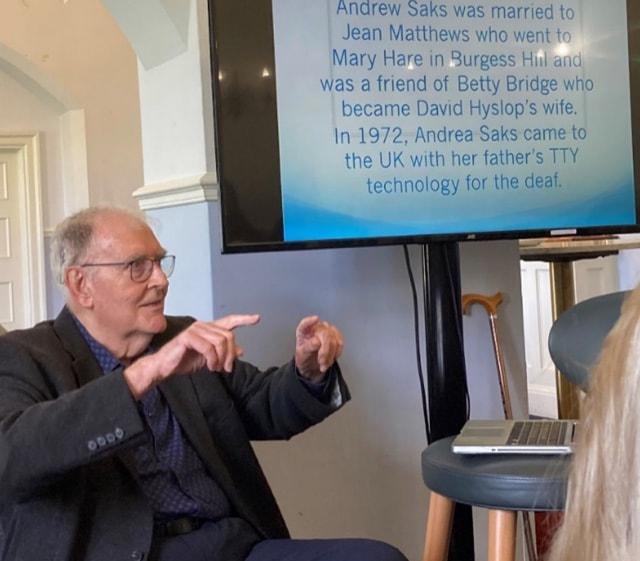
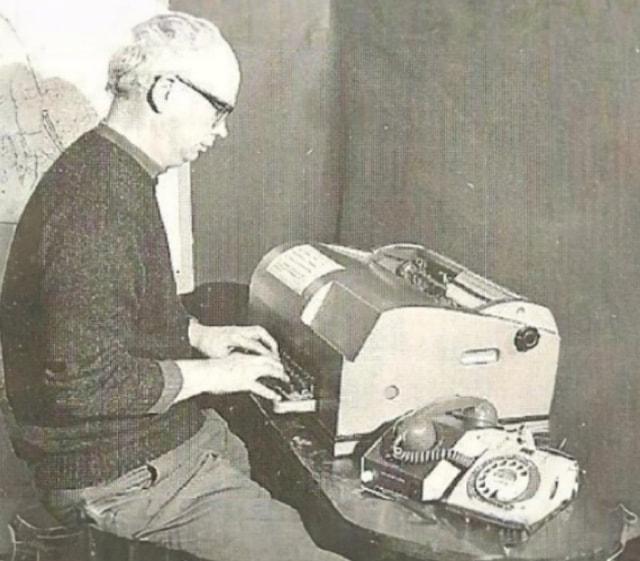

Christopher spoke about the progress and changes from TTY to present day deaf telecommunication devices.
- 1973 – USA connections – Andrew Saks and his daughter Andrea Saks
- 1975 – 1st Transatlantic TTY call to USA - Jack Ashley MP and USA Ambassador, Elliot Richardso (pictured left)
- 1975 – Text Relay service, Ampthill, Bedfordshire
- 1982 – Setting up electronic mail with Telecom Gold
- 1983 – RNID sets up TED – Telephone Exchange for the Deaf
- 1985 – Kegwain introduced Vistel 1
- 1986 - Kegwain introduced Vistel 11
- 1990 – Teletec International introduced Minicom range
- 1991 – RNID starts Typetalk
- 2009 – RNID stepped down from the service managed & owned by BT Name changed to Text Relay
- 2000 - Teletec International introduced world’s 1st Captioned telephone relay service CapTel in UK
- 2018 - BT’s Text Relay re-named Relay UK
Christopher is still campaigning for free functional equivalent relay services in particular, Captioned Telephone which was introduced to the world here in the UK, there was no funding for it after 8 years and VRS for everyone. He is a delegate to ITU (International Telecommunications Union), an UN agency based in Geneva. He works together with Andrea Saks and Lidia Best to produce Multimedia Telecommunication Relay Services.
Christopher summarized his presentation, that Breakthrough was first to introduce access to telecommunications with TTY, text relays and experience with emails.
The first “Zoom” call deafPlus introduced the only Total Conversation network in the UK.
After Christopher presentation’s Graham introduced “Roll of honour” in tribute to deaf pioneers acknowledging their contribution for better telecommunications for the deaf.



We followed up with 4 memorial tributes for Andrew Kenyon, David Hyslop, Dawn Jarrett and Terry Waters.
Ken Carter spoke about Andrew Kenyon’s upbringing and his earlier struggles in finding employment that he enjoyed working. How he finally reached his goal by setting up Breakthrough Trust in 1970s. With support from Diane, his wife. He was one of those outstanding & formidable deaf people and much admired by the deaf/hearing community.
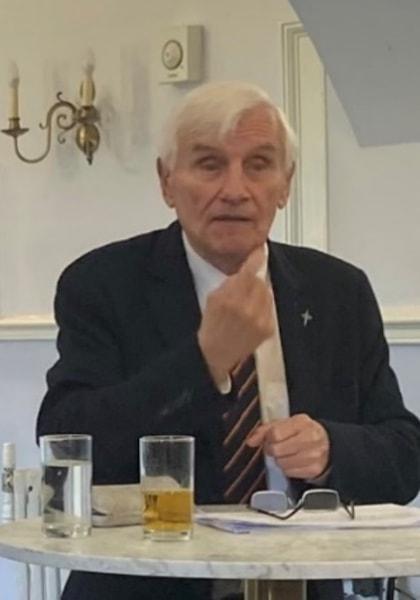
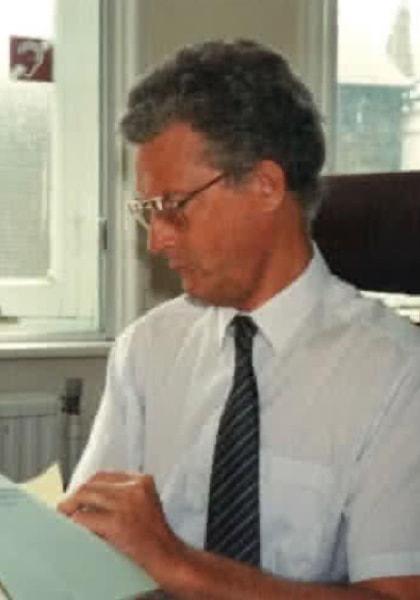

Diane Kenyon made a cameo appearance and spoke about her loving husband. She gave everyone her words of wisdom.
“Telling each one of us that anyone can do anything regardless of Being deaf or not”.
As Christopher Jones mentioned in his email in thanking us for a wonderful day. Diane’s message was powerful to him as both the Kenyons made him the first London Breakthrough Volunteer Leader. I am sure this applied to everyone who have met the Kenyons!!
Peter Howes talked about David Hyslop’s involment with Breakthrough, his achievements as Trustee’s Chair, CEO, and many amusing stories in getting funds. He also mentioned Dawn Jarrett who was David’s right hand person- his “lieutenant”, spokesperson, communicator, advisor and many more.
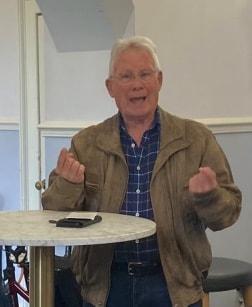
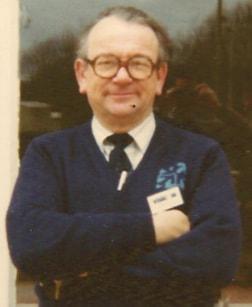
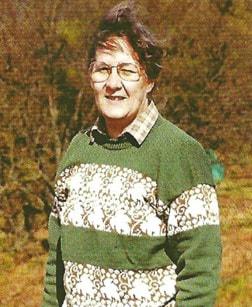
Our last speaker, Libbie Sheppard spoke about how Terry Waters, made a great impact at Breakthrough Roughmoor Centre, West Swindon. In setting up many residential social integration activities with support from his wife Ethel. Libbie also talked about how she found Roughmoor Farm and the fund-raising activities, recruiting deaf/hearing volunteers to refurbish the building and landscaping. Without Terry’s support it would not have developed as much as they did.
When he was not working with me at Roughmoor Terry was busy with the Telecommunications project, visiting David, Andrew, Michael King-Beer and Arthur Cole. I didn’t understand much about what they were doing, but one day a huge teleprinter arrived at Roughmoor. It was old GPO stock, (I think each one cost £25). It was set up for us to use with a separate modem, using the main phone line, so we would press the phone handset onto the modem to make the connection. For the first time we could send messages to other Deaf colleagues around the country. The teleprinter had been sprayed a silver blue to make it look smart! It was huge! It was upstairs on the landing and took over all the office space we had! It was so exciting! It is hard to believe that, until this very time, no Deaf people had access to telephone communication… in fact I often had to make phone calls for Terry - calls that were nothing to do with me.
He had no privacy on the phone. He had to tell me what to say…to his bank manager, his family, …it was his business, not mine, and I realised how important telephone communication was in the hearing world, something I had always taken for granted.
So now we had a teleprinter, a TTY, and I sent one message that I still have…a message to Andrew Kenyon to ask if I could have a day off to get married ‘GA’! I still have this snippet of phone call…it is unique. Andrew’s reply…’ well, it might be very difficult to manage without you for a whole day, but we will, I’m sure, survive somehow!’ And then, after a short chat…yes, at last Deaf people could ‘chat’ on the phone… we signed off BI BI SK SK SK…or I would type KS KS which seemed more friendly!
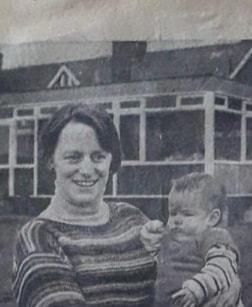
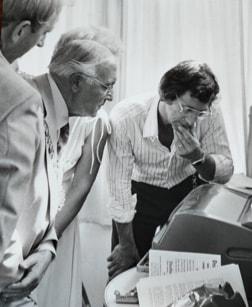
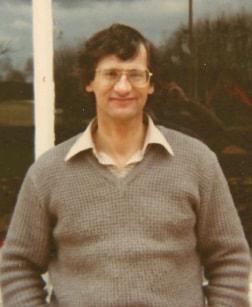
So although we are here to celebrate the development of the telecommunications project 50 years ago, it is important for us all to remember that Terry played a huge and vital part not only in developing the first phone for Deaf people but also, at the same time, 50 years ago, he was running a unique project down in Wiltshire, where hundreds of Deaf people saw the teleprinter in action; and he was able to demonstrate the importance of such technology. All of us here have a lot to be grateful for, especially for Terry’s communication skills, endless energy and enthusiasm for new projects; but especially for the work he developed at the Roughmoor Centre AND with the Deaf Telecoms project at the same time.
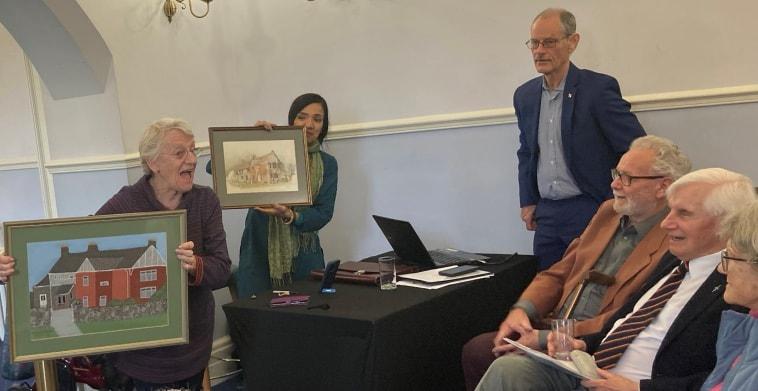
In closing, Rubbena and Graham thanked all the speakers who have been excellent, two interpreters, Amanda Casson-Webb & Caron Wolfenden, Helen Lansdown for taking the photos and all the guests for coming to Bisham Abbey.

Special thanks to the organising team Graham Hocking, DA Co-Chair, Stewart Chessun, Treasurer, DA Trustee, and former Breakthrough Trust volunteer, Andrew Taylor.
Most important of all we are extremely thankful for Rob Engelke, President of Ultratec’s most generous donation of £1000 without which the event would not have taken place at Bisham Abbey, Bisham, Near Marlow, Buckinghamshire.
Report by Graham Hocking, Co-Chair Deaf Aspirations
